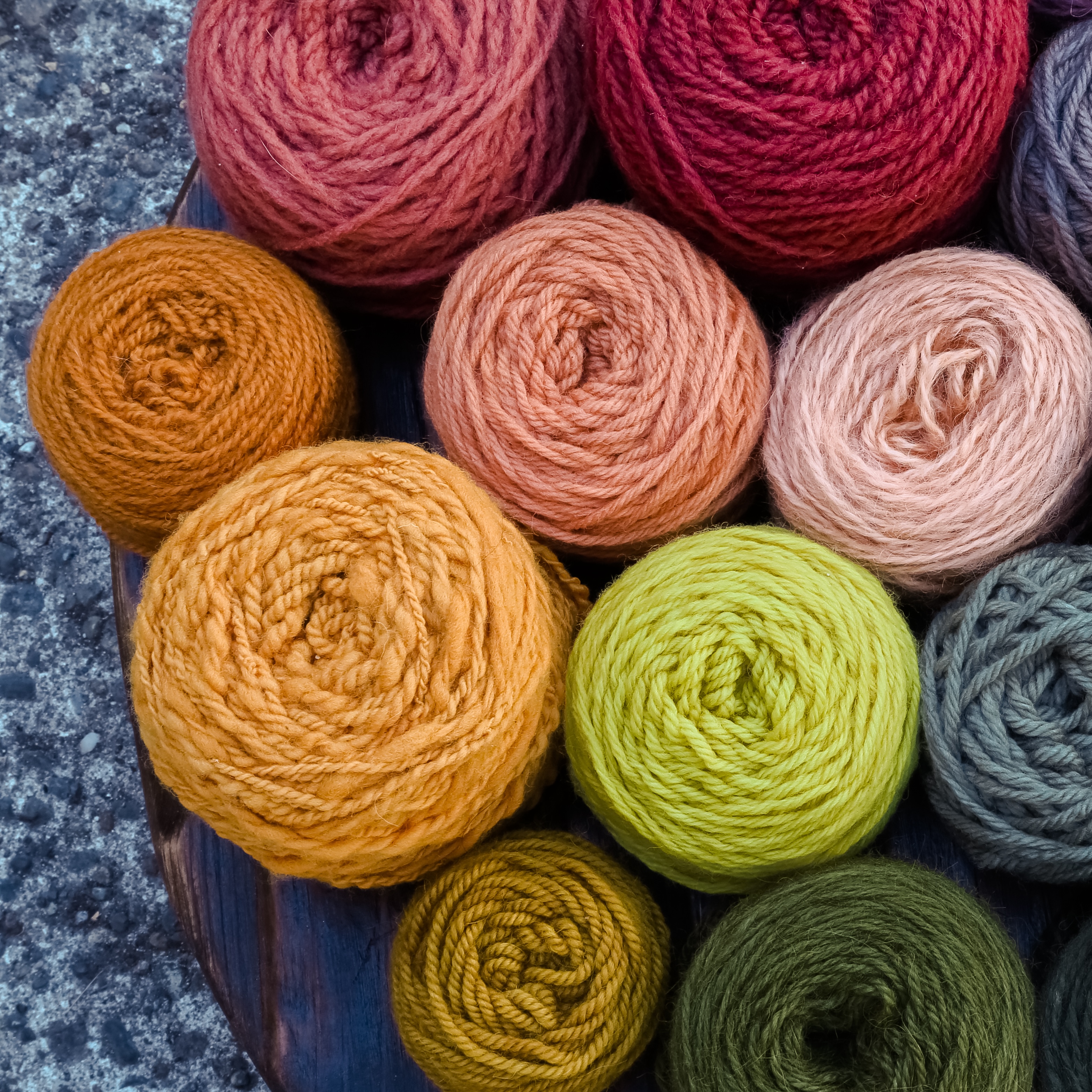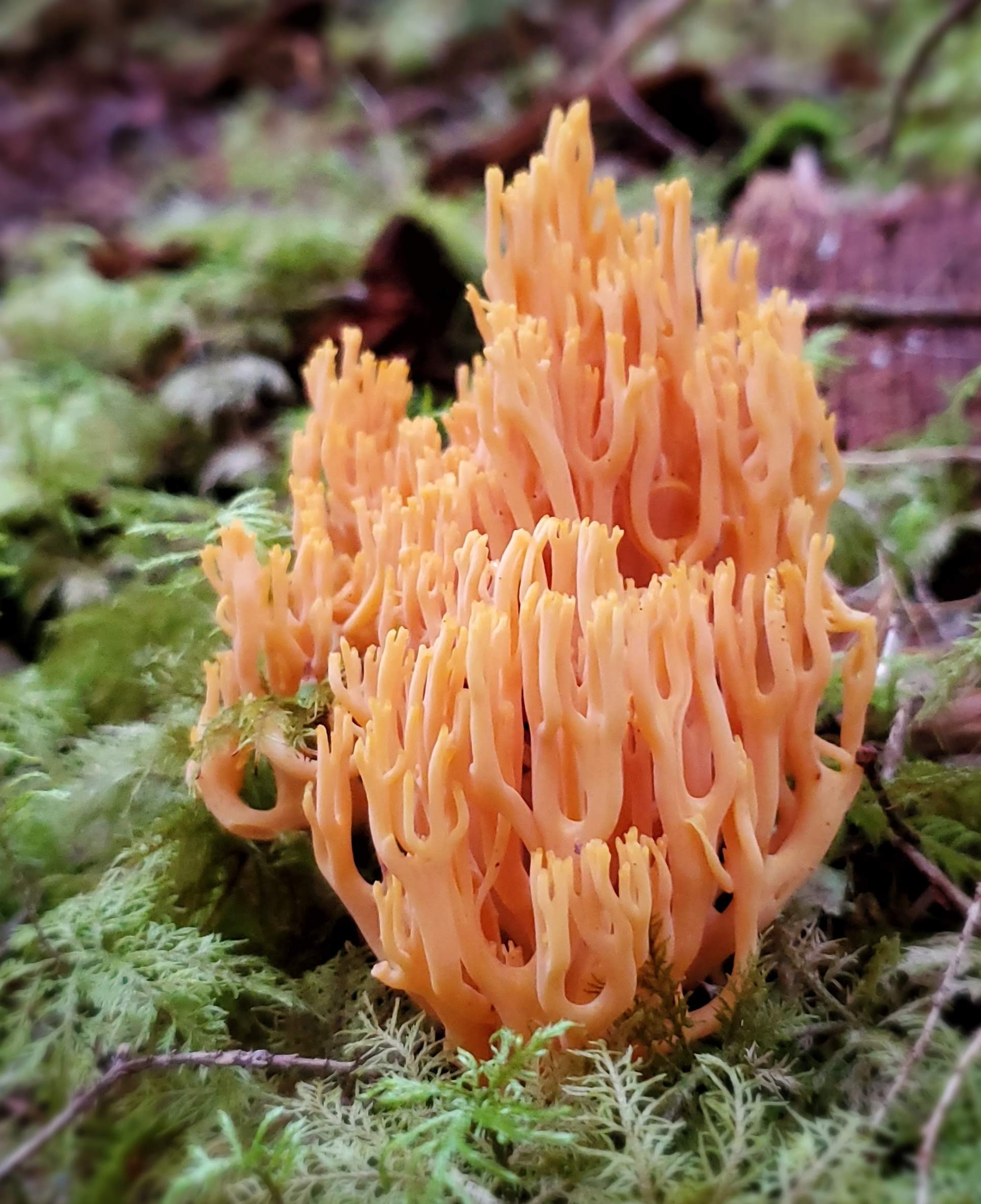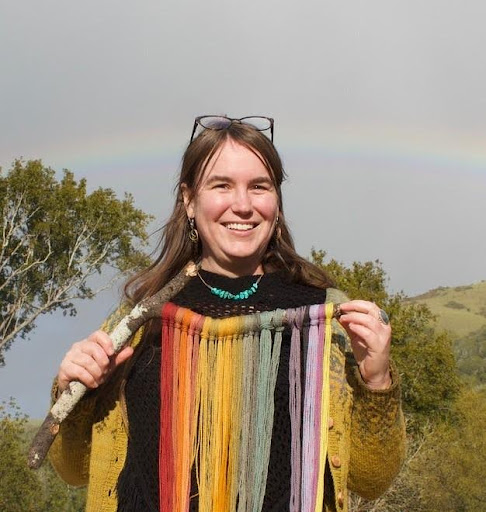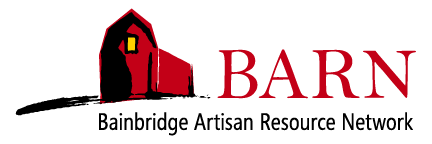
Fiber Arts
Mycopigments: Explore Regional Mushroom and Lichen Dyes
Learn how to dye using fungi you can forage locally!
Tuition Assistance and Other Policies
Meeting Times
- Fri, 11/8/2024 9:00 AM - 4:00 PM
- Sat, 11/9/2024 9:00 AM - 4:00 PM
- Sun, 11/10/2024 9:00 AM - 4:00 PM
Fri, 11/8/2024 - Sun, 11/10/2024
Closed
About
In this unique workshop, you'll be introduced to mushroom identification concepts and create a beautiful array of colors on natural fibers, safely and ethically. All aspects of getting started with mushroom and lichen dyes will be covered, and you'll be prepared to carry on with your own explorations and further study.
Walk among the natural abundance of a Pacific Northwest island and come back to BARN’s Fiber Arts Dye Lab to experience the colorful world of mycopigments using pre-dried mushrooms!
You'll explore regional fungi and lichens as natural dyes through field study and testing for color (including observing fungi in their habitat and testing for dye potential), create a regional dye palette with local mushrooms and lichens, dye your own fibers, and explore how different protein fibers interact with the dyes.

Itinerary
Day 1: Field Study and Color Testing
Take a slow walk through a nearby woodland to observe lichens and fungi in their natural habitat while getting a deeper, hands-on understanding of their ecological niche. We’ll discuss fungi/forest relationships, ethical harvest practices, features to look out for, and field documentation. We'll return to the studio to test mushrooms and lichens for color. This helps us determine whether a species has dye value and, if so, the best route to optimal color. The practical aspects of the morning will be learning to observe and discuss fungal features, performing chemical spot tests on lichens, practicing ethical harvest principles, and taking field notes. The afternoon will prepare you to keep records of your experiments and develop your approach to the craft. You'll take home a field testing kit, a dye testing kit, and samples of experiments.
Day 2: Creating a Regional Dye Palette
Using a selection of local dye mushrooms and lichens, we'll dye a rainbow of samples. We’ll go over special techniques required for optimal results with each fungal dye group. You'll be guided through the steps for making a simple-yet-elegant arashi shibori-inspired silk design. You will receive recipes, a procedural booklet, a customized guide to the best local dye fungi, and create a beautiful hand-dyed scarf.
Day 3: Dye Your Own Fiber
Explore how different protein fibers take the dye by using common, dye-rich fungi on the protein fiber of your choice to get a variable palette of beautiful local colors. This fiber can be used in future projects, as an educational tool, or can simply be admired (see "Materials" section to get the most out of this day). This final segment ties all the concepts together. You'll not only get to see how the dyes work on your fiber of choice, but you’ll see observe how they take to other fiber choices.
Details
- Cancellation requests received prior to noon Friday, Sept. 13, will be eligible for a refund minus a 15% cancellation fee ($99 for members and $126.60 for guests).
- There are only 15 spots available for this class. It will fill extremely quickly. Click on the "wait list" button if that happens (it's free). If there is a cancellation, you'll be notified via email. The spot will be offered on a first-come, first-served basis.
Materials
- A materials fee of $45, included in the price of the class, covers fungi, a silk scarf, informational reference materials, and a field testing kit.
- You should bring six 0.5- to 1-ounce parcels of protein fiber (a selection of wool, silk, or wool/silk blends) to dye. Yarn and fiber need to be weighed and labeled with your name. Further instructions will be sent prior to class.
Class Policies
BARN Policies
- View BARN's Cancellation and Refund Policy.
- Tuition Assistance is available. Fill out the application before registering.
- BARN is committed to accessibility. We try to make accommodations when requested; the earlier you contact us, the more likely we can help. Fill out the Accommodation Request Form before any class for which you require an accommodation. Email accessibility@bainbridgebarn.org if you have any questions.
- Sensory Statement: Makerspaces like BARN can be noisy and cluttered, smell strongly, and have bright or flickering lights. BARN is not an allergen-free facility. If you have concerns, please email info@bainbridgebarn.org.
Instructors or Guides
Alissa Allen
Her workshops are designed to be accessible to all skill levels, providing a solid foundation for beginners while emphasizing the significance of curiosity and experimentation for all. By focusing on regional fungal dye palettes, small-scale applications, and the open exchange of ideas, Alissa encourages students to forge deeper connections with the natural environment and one another. She prompts students to reflect on their ecological footprint while modeling conscientious ethical harvesting guidelines.
Alissa's mentorship has reached tens of thousands of students worldwide through her international workshops, lectures, and no-cost public outreach platform of over 35,000 members. Her expertise is acknowledged in the book "True Colors: World Masters of Natural Dyes and Pigments" by K. Recker (2019). In 2022, she hosted the 19th International Fungi and Fiber Symposium in Port Townsend.
Alissa partners with The Fungivore, extending her outreach to include traditional foraging and textile artisan villages in Oaxaca, Mexico, where she is as much a student as a teacher. She will be offering programs on the island of Gran Canaria as part of the 21st International Fungi and Fiber Symposium in January 2025.
“When you act with reciprocity, exchanging gifts from the wild for community care of wild spaces, there is hope for a healthier planet.”


Follow Us